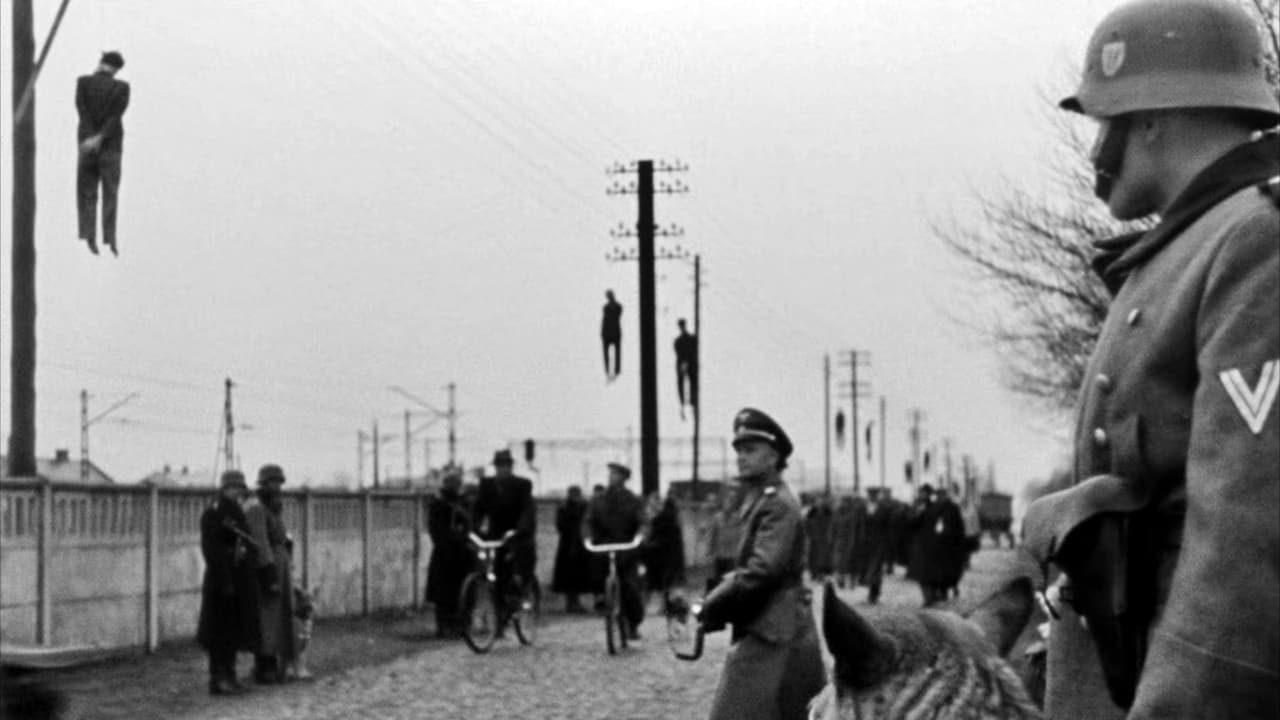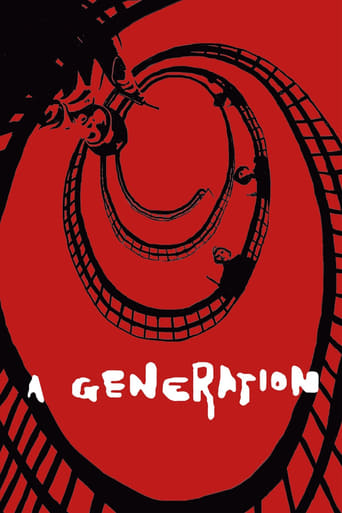



Too much of everything
A Major Disappointment
The plot isn't so bad, but the pace of storytelling is too slow which makes people bored. Certain moments are so obvious and unnecessary for the main plot. I would've fast-forwarded those moments if it was an online streaming. The ending looks like implying a sequel, not sure if this movie will get one
View MoreOne of the worst ways to make a cult movie is to set out to make a cult movie.
View MoreThis movie opens in Poland in 1942, on the outskirts of Warsaw. The opening scene is impressive, starting with a long view of a poverty stricken area and panning about 180 degrees while slowly zooming in on three boys playing a knife-throwing game. One of these boys is the main character, Starch, who provides a voice-over during the scene. Starch works as an apprentice in a woodworking shop. Very early on the complex political situation is introduced, and that is where things get a little complicated for those not overly familiar with Polish history during the war. One factor to keep in mind is that this film was made during the time that Poland was a Soviet satellite state, so I assume certain restrictions needed to be adhered to in order to get it approved. The so-called "good guys" in this are members of the Soviet backed People's Guard, whose goal was to fight the German occupiers as well as to oppose the Polish resistance movement, a movement loyal to the Polish government in exile. It seems that the Soviets had no desire to see Poland as a free independent state.The political tensions are played out in the woodworking shop. A communist, Sekula, works in the shop. We know where he is coming from when he says to Starch, "You work eight hours for the price of one. There once was a wise bearded man by the name of Karl Marx. He once wrote that workers were paid just barely enough to renew their strength." Starch is naive and aimless, so he is taken in by Sekula and a pretty young female Communist and joins their group. There are also members of the Polish resistance movement in the shop. They are represented here as bad guys. Then there is Jasio who works in the shop. He is conflicted--basically he wants to stay out of it and just do his job, but he is drawn to act. It is interesting that he is the first person in the group to kill a German.The acting is pretty pedestrian. The black and white cinematography is quite good; there are a lot of dark shots with only faces lighted. The overall feel is of film noir.A good part of the movie is played out against the backdrop of the Warsaw Ghetto Uprising. One outstanding scene has the conspirators talking while at a carnival that is just outside the ghetto walls, with smoke coming from the ghetto in the background. For someone, like myself, who has meager knowledge of Polish history during WWII, this film helps (although I wonder if the glorification of the Communists was exaggerated). I think that I could spend several days researching the Warsaw Ghetto Uprising.This is a film for those who bemoan the preponderance of shallow entertainments in contemporary movies.
View MoreThe movie that made Andrzej Wajda famous depicts a group of people in Poland's resistance during WWII. In one scene, the movie's protagonist Stach (Tadeusz Łomnicki) learns about Marxism from another man. It's clear that this speech is directed not only at the Nazi occupation, but also at the Soviet occupation. A scene towards the end of "Pokolenie" ("A Generation" in English) reminded me of Agnieszka Holland's "In Darkness", which was recently a nominee for Best Foreign Language Film at the Academy Awards.As for what I thought of Andrzej Wajda's feature debut. I earlier saw Wajda's "Popiół i diament" ("Ashes and Diamonds" in English). From what I understand about the themes that Wajda depicted in that one, it sounded like what we might call the perfect Polish movie. "A Generation" is also really good, although I did find "Ashes and Diamonds" to be a little better. In an interview, Wajda noted that the title refers to his generation: the leaders of Poland's pre-war film industry had fled the country, and so his generation was essentially starting it from scratch.All in all, a very good movie. Watch for a young Roman Polanski as one of Stach's compatriots.
View More"A Generation" (Polish, 1954): This is the first of a war trilogy by Andrzej Wajda. Photographed in rich black & white, "A Generation" is about the youth of Poland, who joined underground rebellions against the Nazis. They formed small "cells" (sound familiar?) of fighters, used pseudonyms, and seldom met with larger groups for the sake of secrecy and safety. The photography is wonderful (the long opening scene is alone worth the price of admission), the acting is great to average (with a TEENAGED Roman Polanski in one of the supporting roles!), and the dialog gives insight into kids who must grow up overnight and become not merely premature adults, but calculating killers. Made less than a decade after the war, this film depicts the serious, accurate, and even on extremely rare occasion, lighthearted moments that made up their lives. "Kanal" (1957), and "Ashes & Diamonds" (1958) follow.
View MoreHard not to view this film with the benefit of hindsight when - for example - the final image, of faces almost tangibly seeing the light of a new tomorrow, is apparently so straightforwardly propagandistic; scenes such as that in which the older workman talks reverently about the promise of Karl Marx now seem at best quaint. That's probably not an entirely fair prism through which to consider the film, but the theme of anti-Nazi resistance obviously becomes less stirring when one considers the limitations of what's being put forward as the alternative. Furthermore, although the movie's gritty, shadowy pace generally makes for entertaining viewing, there's a fairly consistent series of images which seem to push too hard - the heart-shaped photo slot at the fair through which we watch as she steps away from him; the Hitchcock-like fall through the well of the spiral staircase. The movie's pace and concentrated immersion in its time and place makes it engrossing, and the earnestness and deprivation are still touching, but it's surely no longer the viewing experience it once was.
View More